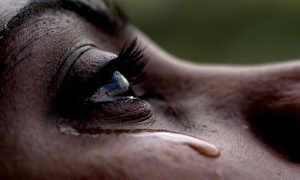What am I afraid of?….this simple 5 word question that was asked of me rolled around in my mind. Not so simple. As a person usually quick with a snappy response…to my surprise and chagrin, I struggled to answer. I’ll give the intelligent response as Marrian Williamson’s words from A Return to Love: Reflections on the Principles of “A Course in Miracles”, Ch. 7, Section 3 (1992), p. 190. popped into my head: Continue reading
Tag Archive | black women
Kryptonite with your Coffee?
 You walk through the door and are greeted by the intermingling aromas of fresh baked pastries and rich savory coffee. This welcoming scent woos you to explore and accentuates the atmosphere. You order a giant cookie and a cup of coffee as you look around for a comfy seat. Continue reading
You walk through the door and are greeted by the intermingling aromas of fresh baked pastries and rich savory coffee. This welcoming scent woos you to explore and accentuates the atmosphere. You order a giant cookie and a cup of coffee as you look around for a comfy seat. Continue reading
Nappyheaded-Afrowearing-Angela Davis-Wannabe
Nappyheaded-Afrowearing-Angela Davis-Wannabe!!!!!!
YUP!!! Had that insult loudly hurled at me out on the playground and since I thought he was oooooo soooo cute, it really cut me deep. I was so angry with my Momma for sending me out into the world looking like a Q-tip. Don’t judge me, 6th grade is rough!!! It  didn’t get better as I went to high school and almost flunked gym because I did NOT want to get my hair wet and spend all of my lunch blow-drying it and trying to smooth it out with my butane curling iron (that would NEVER get hot enough). Oh stop looking like you didn’t have the butane clicker.
didn’t get better as I went to high school and almost flunked gym because I did NOT want to get my hair wet and spend all of my lunch blow-drying it and trying to smooth it out with my butane curling iron (that would NEVER get hot enough). Oh stop looking like you didn’t have the butane clicker.
New Study Shows How the Pressure to Be ‘Strong’ Can Leave Black Women Denying, Ignoring Their Own Struggles with Depression
Reposting from: http://atlantablackstar.com/2015/04/09/new-study-shows-pressure-strong-can-leave-black-women-denying-ignoring-struggles-depression/
 Black women are far less likely to struggle with depression than their white counterparts.
Black women are far less likely to struggle with depression than their white counterparts.
That’s the inaccurate message several headlines implied when a new study found that Black women were less likely to report suffering from depression than white women.
Those headlines, however, can be extremely misleading by omitting one simple but extremely important word: Report.
The study, which was recently published in JAMA Psychiatry, utilized findings from a massive survey where women were asked to report whether or not they battled with depression at some point in their lives.
Researchers talked to more than 1,400 Black women and roughly 340 white women.
With such a significantly greater amount of Black participants, one might be quick to think that the Black women reporting struggles with depression would outnumber their white counterparts.
Even with more than 1,000 extra Black female participants, the national survey found that only 10 percent of Black women reported dealing with depression or any other mental health disorder at some point in their lives.
More than 20 percent of white women said they dealt with at least one mental health disorder.
When specifically focusing on depression, Black women still represented a miniscule part of the population that admitted to dealing with the disorder.
While nearly 10 percent of the white participants admitted to battling depression within the last year, 5.5 percent of Black women reported the same.
Another 22 percent of white women admitted to dealing with any kind of mood disorder at some point in their life. Only 14 percent of Black women reported so.
So does this mean Black women are happier, more carefree individuals? Is this an implication that these women are just as strong as society has always proclaimed them to be and that despite facing life changing obstacles and unique challenges, they are nearly invincible when it comes to emotional distress?
Not at all.
Black women are a population that has to fight battles against both sexism and racism, delivering a left hook and an uppercut to their fight for equality in a white, male-dominated world.
That type of stress makes it very easy to slip into the grips of depression, but the stigma about depression and other mental disorders in the Black community discourages many Black people from seeking help for such conditions or even realizing they have a problem.
The Black community boasts a lineage of incredibly strong and resilient ancestors.
It’s a history to be proud of but also a past that is used against Black people who are feeling suffocated by the modern day struggles of racism, discrimination and every day life.
Dr. Monica Coleman, a Black professor and author who has been diagnosed with bipolar disorder, once explained that just the idea of going to therapy is taboo in the Black community.
“Seeing a therapist is generally seen as a sign of weakness or a lack of faith,” Dr. Coleman explained during an interview on PBS. “There is still an active mythos of the ‘strong Black woman,’ who is supposed to be strong and present and capable for everyone in her family—and neglects her own needs.”
Dr. Coleman revealed that during one of her own depressive episodes, a friend told her that, “[Black people] are the descendants of those who survived the Middle Passage and slavery. Whatever you’re going through cannot be that bad.”
 It’s a message that Dr. Coleman said upset her and angered her even more.
It’s a message that Dr. Coleman said upset her and angered her even more.
“No, depression isn’t human trafficking, genocide or slavery, but it is real death-threatening pain to me,” she added. “…That comment just made me feel small and selfish and far worse than before. It made me wish I had never said anything at all.”
That’s the unfortunate reality that many Black people, especially Black women, face.
It has become so normal for some Black women to subject themselves to limitless sacrifices, emotional stress and excessive burdens that they often don’t even realize when they have crossed the line into depression.
So whether it’s caused by undeserved shame or a lack of realization, Black women are indeed far less likely to report struggling with depression.
They are far less likely to deem what has been presented to them as the daily life and responsibilities of the “strong Black woman” as depression.
They will rarely open up to find comfort in others when they have been taught to always be the source of comfort themselves.
Black women may not report that they are depressed or even seek any help or advice.
This does not mean, however, that they are any less likely to be in the midst of a grueling battle with depression or any other disorder.
Black Women Find a Growing Business Opportunity: Care for Their Hair
 Kadeian Brown, left, and Judian Brown own Black Girls Divine Beauty Supply and Salon, off Church Avenue in Flatbush, Brooklyn. CreditKirsten Luce for The New York Times
Kadeian Brown, left, and Judian Brown own Black Girls Divine Beauty Supply and Salon, off Church Avenue in Flatbush, Brooklyn. CreditKirsten Luce for The New York Times
Posters of African-American women with long, sleek hair fill the window. Round jars of shea butter belly up to slender boxes of hair dye on the shelves. Wigs perch on mannequin heads.
What makes Black Girls Divine Beauty Supply and Salon’s visitors do a double-take is the skin color of the proprietors. “I go, ‘Look at all the faces on the boxes,’ ” said Judian Brown, recalling other shopkeepers’ and customers’ surprise when they realize she is not an employee, but the owner. “Who should be owning these stores?”
The Brown sisters’ is one small shop in a multibillion-dollar industry, centered on something that is both a point of pride and a political flash point for black women: their hair. But the Browns are among only a few hundred black owners of the roughly 10,000 stores that sell hair products like relaxers, curl creams, wigs and hair weaves to black women, not just in New York but across the country. The vast majority have Korean-American owners, a phenomenon dating back to the 1970’s that has stoked tensions between black consumers and Korean business people over what some black people see as one ethnic group profiting from, yet shutting out, another.
 The Hair Shop is one of many beauty stores on Fulton Street in Downtown Brooklyn.Credit Kirsten Luce for The New York Times
The Hair Shop is one of many beauty stores on Fulton Street in Downtown Brooklyn.Credit Kirsten Luce for The New York Times
A growing awareness of this imbalance has spurred more black people to hang out their own shingles. The people producing the products have changed, too: As “going natural” — abandoning artificially smoothed hair in favor of naturally textured curls and braids — has become more popular and the Internet has expanded, black entrepreneurs, most of them women, are claiming a bigger share of the shelves in women’s medicine cabinets. Continue reading